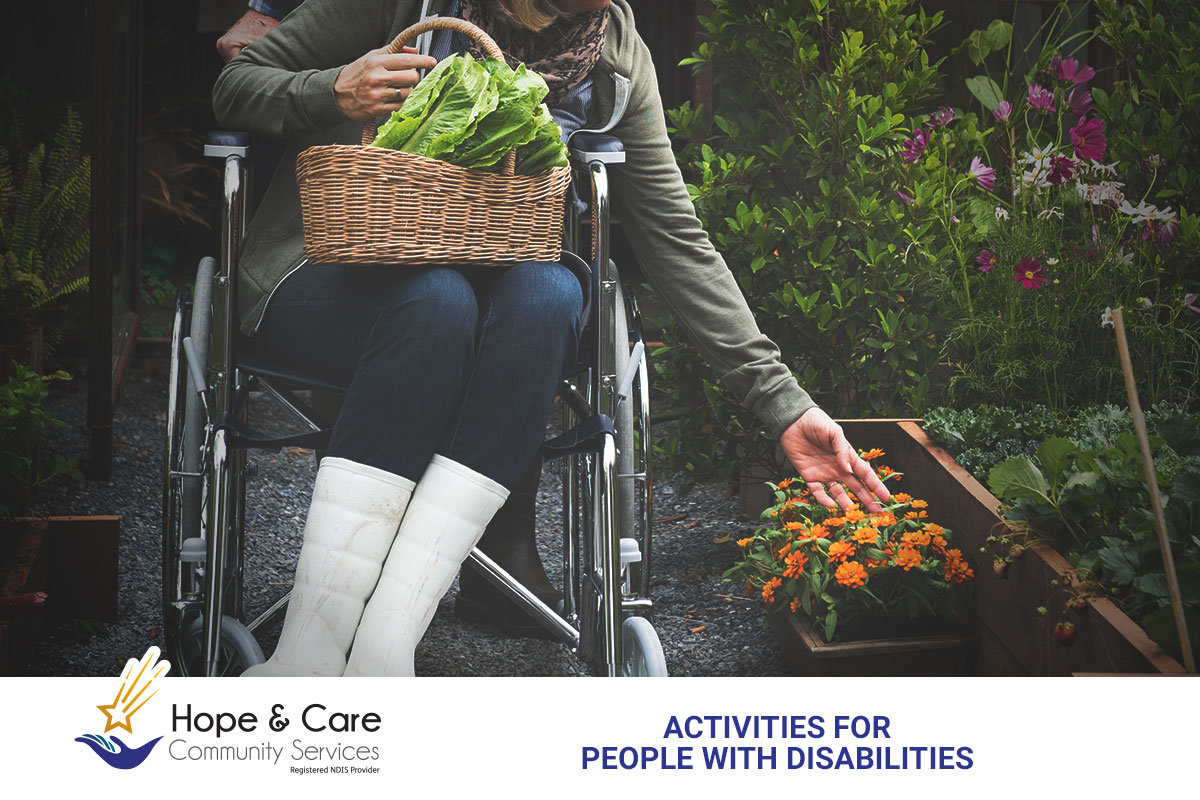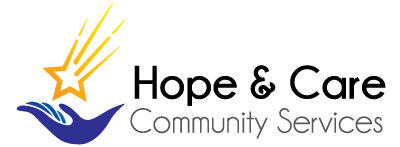
Living with a disability can present challenges, but it doesn’t mean individuals cannot lead fulfilling and enriching lives. Daily activities that focus on mental, physical, and emotional well-being are essential to improve quality of life, increase independence, and foster social connections. By engaging in purposeful activities, individuals can enhance their daily life and experience personal growth, confidence, and overall happiness.
In this article, we explore a variety of activities designed for people with disabilities that promote social inclusion, physical health, creativity, and personal development. These activities can be adapted to meet individual needs, ensuring that everyone, regardless of their abilities, can participate and enjoy an enhanced daily life.
Social and Community Participation
Social inclusion and a sense of belonging are vital for overall well-being. Participating in community and social activities allows people with disabilities to build relationships, develop communication skills, and engage with others in meaningful ways. Regular community engagement also helps in reducing feelings of isolation and loneliness, which are common among individuals with disabilities.
Benefits of Community Participation:
- Boosts confidence and improves self-esteem through interaction with others.
- Enhances communication skills by offering regular social engagement.
- Provides opportunities for learning new skills and hobbies in a supportive environment.
Examples of Community Participation:
- Joining clubs or community groups: There are numerous clubs, from sports to creative arts, that offer inclusive environments for people with disabilities. These groups provide opportunities to meet new people, learn new skills, and engage in group activities.
- Volunteering: Volunteering not only builds a sense of purpose but also enables participants to contribute to their community. Whether it’s helping at a local charity, assisting in a community garden, or participating in neighbourhood events, volunteering fosters social inclusion and personal development.
- Attending local events: Activities such as community festivals, concerts, or gatherings at local parks offer great opportunities for social interaction and fun.
Encouraging regular community involvement helps individuals feel more connected to those around them and provides a platform for personal and social growth in daily life.
Physical Activities and Exercise
Maintaining physical health is just as important for people with disabilities as it is for everyone else. Regular physical activity not only helps improve physical strength and mobility but also boosts mood and reduces stress. Tailored exercise programs can accommodate various abilities, ensuring that all participants can benefit from staying active.
Benefits of Physical Activity:
- Improves overall mobility and strength, which can lead to greater independence.
- Boosts mental health by reducing anxiety, depression, and stress.
- Increases social connections when participating in group exercise or sports activities.
Types of Physical Activities:
- Swimming: Aquatic therapy is an excellent option for individuals with mobility limitations. Swimming or water aerobics provides a low-impact workout that helps improve muscle strength, flexibility, and cardiovascular health.
- Adaptive sports: Sports like wheelchair basketball, tennis, or boccia have been adapted for individuals with disabilities. These sports promote teamwork, enhance motor skills, and offer a fun and competitive environment for participants.
- Gentle exercises: Activities such as yoga, tai chi, or guided stretching can improve balance, coordination, and flexibility. These activities also promote relaxation and mindfulness, offering both physical and emotional benefits.
Incorporating physical activity into daily life improves overall health and contributes to a better quality of life.
Creative and Artistic Expression
Creative activities are powerful tools for enhancing self-expression, reducing stress, and boosting mental health. Engaging in artistic pursuits provides individuals with disabilities an opportunity to express their feelings, thoughts, and creativity in a positive and enjoyable way. These activities are adaptable to a wide range of abilities and preferences, making them accessible to everyone.
Benefits of Creative Expression:
- Enhances emotional well-being by providing a productive outlet for emotions.
- Improves cognitive functions, such as focus and problem-solving.
- Builds self-esteem by creating a sense of accomplishment through completed projects.
Examples of Creative Activities:
- Arts and crafts: Engaging in activities such as painting, drawing, knitting, or pottery allows individuals to explore their creativity while working at their own pace. These activities can be adapted to different ability levels, making them inclusive for all participants.
- Music therapy: Music is a powerful form of expression that can reduce stress, elevate mood, and foster a sense of accomplishment. Whether through playing an instrument, singing, or simply enjoying music, participants can benefit from the therapeutic effects of music.
- Writing and journaling: Writing offers an avenue for self-reflection and communication. Journaling or engaging in creative writing can help individuals process their thoughts and emotions, while also improving their writing and language skills.
Incorporating creative activities into daily life helps individuals develop new skills, boost their mental health, and enjoy a greater sense of fulfillment.
Life Skills and Personal Development
Learning essential life skills is crucial for fostering independence and self-reliance. Developing these skills enables individuals with disabilities to perform daily tasks, make decisions, and feel more in control of their lives. Life skills training should focus on practical activities that help individuals manage their personal affairs and maintain a comfortable living environment.
Benefits of Life Skills Development:
- Builds independence by teaching practical, everyday tasks.
- Improves decision-making and problem-solving abilities.
- Increases self-confidence and a sense of control over personal circumstances.
Key Life Skills to Learn:
- Cooking and meal preparation: Learning to prepare meals helps individuals develop healthier eating habits and provides a sense of independence. Cooking classes or simple meal prep activities can be tailored to meet different skill levels.
- Household management: Managing household chores such as cleaning, laundry, and basic home maintenance helps individuals with disabilities develop routines that promote personal responsibility and control over their environment.
- Technology and digital skills: In today’s world, digital literacy is essential. Learning to use computers, smartphones, or tablets enables individuals to communicate with others, access information, and potentially find employment or engage in educational opportunities.
Helping individuals acquire life skills empowers them to live more independently and enhances their overall daily life.
Cognitive and Mental Stimulation
Just as physical exercise is essential for the body, mental stimulation is critical for maintaining cognitive health. Engaging in mentally challenging activities helps individuals with disabilities sharpen their focus, improve memory, and enhance problem-solving skills. Cognitive activities also promote continuous learning and personal growth.
Benefits of Mental Stimulation:
- Improves memory and focus, which helps with daily tasks.
- Encourages critical thinking and problem-solving abilities.
- Promotes continuous learning, which boosts confidence and personal development.
Activities for Cognitive Stimulation:
- Puzzles and brain games: Engaging in puzzles such as crosswords, Sudoku, or jigsaw puzzles stimulates the brain and encourages problem-solving. These games can be done individually or in groups, providing both mental and social benefits.
- Reading and learning: Reading books, taking online courses, or attending workshops can help individuals learn new skills, expand their knowledge, and remain mentally engaged.
- Mindfulness and meditation: Practicing mindfulness or meditation helps reduce stress, improve concentration, and promote emotional well-being. These practices can be easily incorporated into daily routines and offer lasting cognitive benefits.
By participating in mentally stimulating activities, individuals with disabilities can maintain and improve their cognitive health, ensuring they stay mentally sharp and focused.
Conclusion
Enhancing daily life for people with disabilities involves more than just providing care—it requires offering opportunities for growth, creativity, social inclusion, and personal development. By incorporating a variety of activities into their routines, individuals can enjoy a more fulfilling, independent, and active lifestyle. From community engagement and physical exercise to creative expression and life skills training, there are countless ways to support people with disabilities in leading enriched lives.
Engaging in these activities promotes overall well-being, builds self-confidence, and fosters independence, ensuring that individuals with disabilities can lead active, joyful, and empowered daily lives.
Finally, as Registered Provider, we understand the intricacies of the navigating services on your own. Unlock the full potential of your funding and provide the guidance you need to reach your goals. Feel free to Contact Us to explore how we can assist you on your journey. For instance, the NDIS is there to make a positive difference in your life, and we’re here to help!.
Want to learn more? Read other articles :
- Redefine Independence your own way – with HCCS
- Who’s Who: The Key Terms of Your NDIS Plan
- Foundational Supports: Building Blocks of NDIS Success
HCCS is a registered NDIS provider. Learn more about our services.
♥ We are available in Brisbane! – Our team is just a call away!
